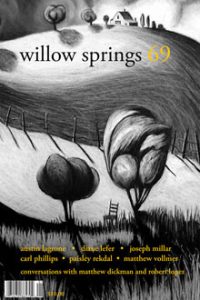
About Diane Lefer
Diane Lefer is an author, playwright, advocacy journalist, and activist whose most recent short story collection, California Transit, was awarded the Mary McCarthy Prize and published by Sarabande Books. With Colombian exile Hector Aristizábal she is co-author of the nonfiction book, The Blessing Next to the Wound (Lantern Books, 2010) while their theatrical collaboration, Nightwind, has toured the world, including for human rights organizations in Colombia and Afghanistan, as part of the global movement to end the practice of torture. A recipient of fellowships from the National Endowment for the Arts, New York Foundation for the Arts, and City of Los Angeles Department of Cultural Affairs, Diane taught for 23 years in the MFA in Writing Program at Vermont College of Fine Arts. She has been a guest artist at colleges, writing conferences, and festivals and has led arts-based workshops for young people in foster care as well as those caught up in the juvenile in/justice system. In 2011, she offered Spanish-language workshops at the International Theatre Festival for Peace in Barrancabermeja, Colombia and will do so in February 2012 in Cochabamba, Bolivia for Educar es Fiesta, a nonprofit that works with families in crisis, including children who live in the streets. On her return she hopes to finish the first draft of a novel-in-progress and plunge into publicity for Nobody Wakes Up Pretty, her short crime novel which Rainstorm Press will publish at the end of May.
A Profile of the Author
Notes on "Sin-Tra-La!"
After “Sin-Tra-La!” was accepted, Laura Ender at WS asked specific questions about the legalities of shipping bodies. I love it that she raised issues of factual accuracy. When I have to make my fiction conform to reality, it almost always opens up new possibilities for revision and acts as a spur to my imagination. But the origin of the story goes back decades, to when I had a clerical job with the airlines in order to get travel benefits—free flights. I was briefly in Portugal and spent only a couple of hours in beautiful Sintra. In those days, my idea of a great weekend was to take the shuttle bus to JFK after work on Friday and fly all night to Rio de Janeiro, then fly back to NY Sunday night and make it to the office by 8:30 AM. One day in 1972, on the cable-car traveling up Pão de Açúcar I sat directly across from a row of somber men dressed in black. They never smiled. They seemed unmoved by the views of Ipanema, Corcovado, Guanabara Bay. It turned out they were members of a delegation from Portugal tasked with delivering a special gift to Brazil: the exhumed body of Emperor Pedro I, dead since 1834. I was haunted by these men and their mission. I knew this would work its way into a story someday but I didn’t know how. So why now? And why Santa Monica? Months ago I would have said all I know is that a writer who lives long enough gets to use everything. But the question about the origin of the story and how it evolved made me think harder.
Here in Los Angeles I was spending a lot of time with young people and with families who’d survived or had perpetrated violence or had to mourn the violent death of people they loved. And there were the sidewalk memorials, the car washes to raise money for funeral expenses, and all the emotions that come up at these times. Maybe it was all percolating in the back of my head, the different ways of mourning and the rituals and behaviors we fall back on to cope with grief and to find the words and actions we offer the grieving.
Notes on Reading
As a freshman in college, El Señor Presidente came into my hands, a novel by the Guatemalan Nobel Laureate Miguel Angel Asturias. My Spanish was rudimentary, but the poetry of his language and the sociopolitical power of the book hit me so hard, I became intent on learning his language. His novel also opened up my curiosity about Latin America. Soon I was reading all the authors of the Boom. At the time, I felt oppressed by the so-called rules young fiction writers were supposed to abide by in the U.S. You can’t switch point of view. (Tell that to Carlos Fuentes or Juan Rulfo.) Show, don’t tell. (Good thing García Márquez didn’t hear that. Or if he did, he ignored it along with the point-of-view rule later when he was writing Autumn of the Patriarch.) As I read, I was also learning about U.S. intervention in those countries and of the ongoing struggles there for social justice. I dropped out of school and ran away to Mexico. My first published stories were set there and my ongoing connections with Latin America tend to combine activism with art. I guess you wouldn’t know that from “Sin-Tra-La!” which I set in California instead of Brazil!


